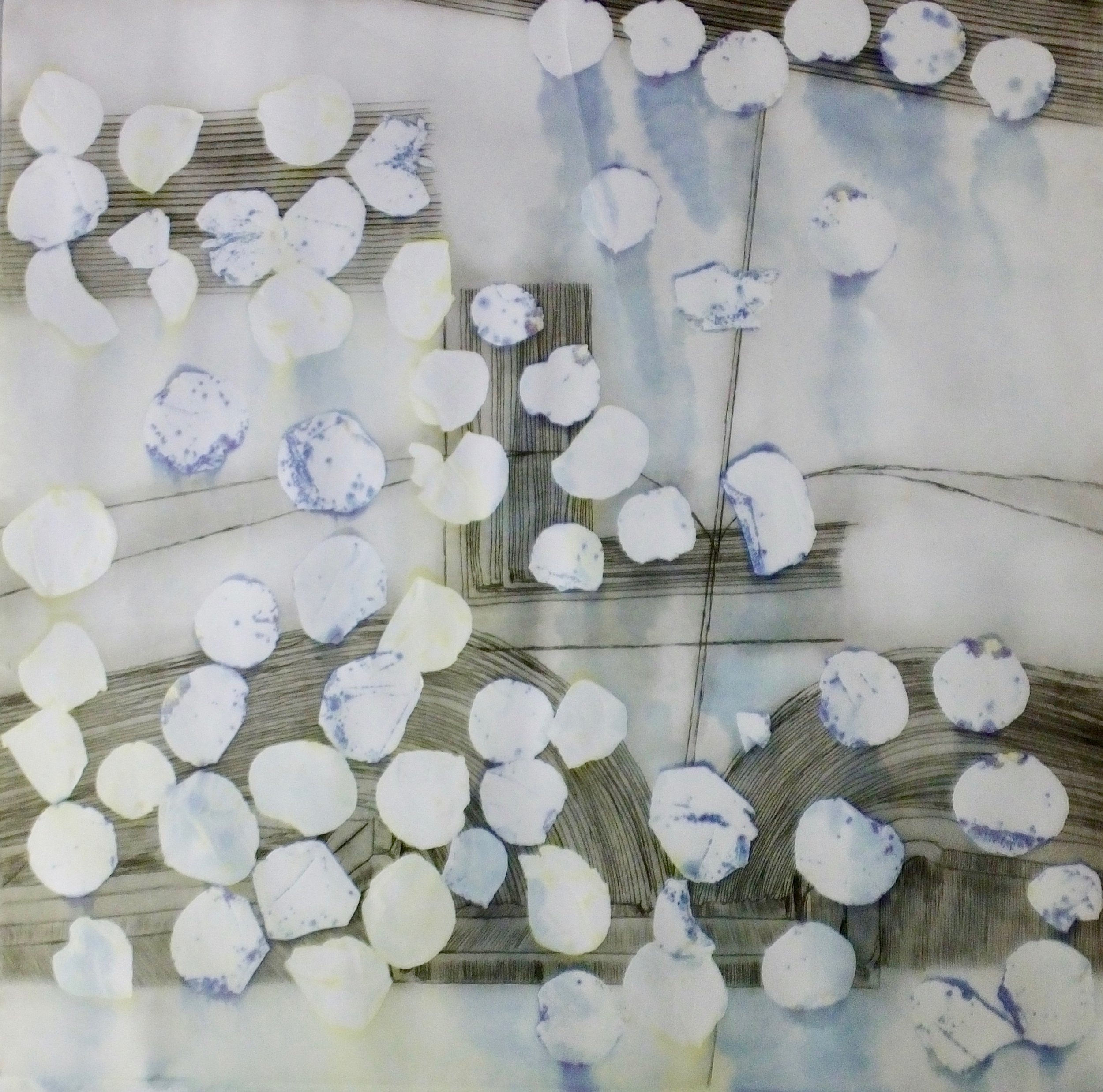Barnabus Howard Kinge Reviews 'Systems of Philosophy'
As the final days of the exhibition of prints from ‘Systems of Philosophy - Wall(paper)s of mind are here I will add a few little gems - largely unseen and here is one of my favourites, written last year when the work was in the UK;
A Review of Sally Annett’s Systems of Philosophy, Wall (paper)s of Mind 2018
By Barnabas Howard Kinge
‘A Hidden Connection Is Stronger Than an Obvious One’
Heraclitus
Two thousand and eighteen will doubtlessly be remembered as a liminal period in contemporary history, a time when conflicting and mutually exclusive views of progress have challenged neoliberal assumptions and established that ‘the end of history’, as envisioned around the millennium; was just another phase in the global unfolding. Analysts across the arts & sciences are marveling at the role technology in this process, which has widely been regarded as a fourth industrial revolution focused around the political/technological nexus. The implications of this are only just beginning to be explored and in this sense Annett’s ‘Systems of Philosophy’ has struck the zeitgeist, whilst invoking hidden/forgotten memories within the culture and a Mandelbrot of interconnected meanings which may be considered individually and collectively. To discuss the significance and acceptations of each node in the Systems would be beyond the scope of this artifice, however I hope to share some personal reflections from interacting with Annett’s work and to comment on why the project is deserving of critical attention. Moreover, I hope to discuss why, in the effort to unite the threads in the project, a macro-level of impressions may begin to emerge, perhaps greater than the sum of the parts.
Text 2 P3. Rose Petal transfer etching
Systems of Philosophy (S.O.P) has been produced by Sally Annett, a Franco-British Artist in collaboration in Wrest Park and Bletchley Park, supported by Arts Council England and Alchemy solutions. Annett has created twin exhibitions at Wrest and Bletchley Parks which have been supplemented by visitor interactions and workshops. Each set of works has been inspired by the forms and functions of paper technology, utilizing handmade prints, surface remodeling and an eclectic synthesis of traditional and contemporary techniques- including the artist’s unique innovations such as printing and inverting using rose petals (transfer engraving). Part of the resonance of the works is couched in Annett’s attention to contemplative artworks and the manner in which social and cultural products reflect the inclusive and developmental nature of folk imagination; particularly English internationalism across temporal and psychological time. The exhibitions display a seamless blend of technique, connotation, interpretation and suggestion of impressive scope, it as if you are at one and the same time presented with easily recognizable schemata and a series of enigmas to decipher.
Verdant Man P3. Rose Petal transfer etching.
In this sense the works as presented at the site exhibitions appear to reflect the broader historical narratives at Wrest and Bletchley park, whilst simultaneously drawing our attention to facets of the grand narrative that have evaded contemporary analysis. This includes but is not limited to the fascinating history of the English Heritage Collection of wallpapers. This archeological collection is replete with symbols and emblemata spanning project Empire and British class development; and in collaboration with the curatorial teams Annett has composed a series of engravings, giant codices, poetry, origami and original prints, which are at once beautiful and cryptic. At Bletchley Park Annett’s findings from the archives have included the discovery of several female operatives in the code breaking mission whose names and voices have almost been forgotten. In applying narrow focus on the remaining shards and fragments which bear their names and contribution to the great work, Annett raises provocative questions regarding cultural memory and curation focused in the political/technological and esoteric nexus .Why these aspects have never been explored in quite this way is an interesting consideration, however the timeliness of the ongoing tech revolution may be enabling a reassessment of the past, as Janus like, we take a step back in order to leap forward.
Bird en Colere P3. Rose Petal transfer etching.
Archive P3. Rose Petal transfer etching



